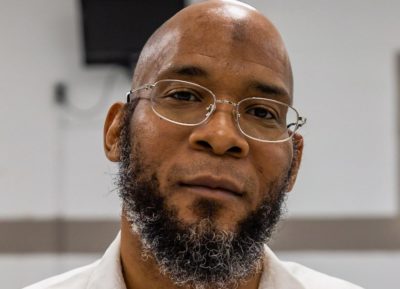In a decision that has sparked nationwide outrage, Marcellus Williams, 55, was executed in Missouri despite ongoing claims of his innocence and calls for clemency from both his defense and the prosecution. Marcellus Williams, who had been convicted in 2001 for the murder of Felicia Gayle, a social worker and former newspaper reporter, had maintained his innocence for more than two decades. His case attracted significant attention due to the controversial nature of the evidence against him, including the questionable testimony of informants and mishandled DNA evidence.
Felicia Gayle was found stabbed to death in her home in 1998, and Marcellus Williams was convicted largely based on testimony from two informants. His defense team argued that these informants were unreliable, having been incentivized to testify against him. Hopes for overturning Marcellus Williams’ conviction rose when DNA analysis revealed that DNA found on the murder weapon did not match his. However, the discovery that the weapon had been mishandled—resulting in contamination by police and prosecutors—dashed those hopes, undermining its potential to exonerate Williams.
Governor’s Role and Judicial Intervention
Marcellus Williams was previously set to be executed in 2017, but Missouri’s then-governor, Eric Greitens, granted a last-minute stay of execution, establishing a panel of five retired judges to review the case. This move was seen as a potential turning point, providing hope for a comprehensive review of the evidence that could lead to Marcellus Williams’ exoneration. However, the panel was dissolved in 2023 by Greitens’ successor, Governor Mike Parson, before it could submit its conclusions.
Governor Parson, a fellow Republican, faced criticism for rejecting requests for clemency, including appeals from local prosecutors who had joined the defense in advocating for a reduced sentence. Marcellus Williams had been offered a plea deal earlier this year, which would have seen his death sentence commuted to life imprisonment. Yet, in a contentious decision, the Missouri Supreme Court blocked the plea deal and ordered the execution to proceed. This sparked further debate about the judicial system’s handling of the case and the role of the state’s political leadership in the final outcome.
Appeals to the U.S. Supreme Court Rejected
In a last-ditch effort to save Marcellus Williams’ life, his defense team filed an appeal to the U.S. Supreme Court, which was rejected in a 6-3 vote. The decision reflected the conservative majority of the court, raising concerns about the broader implications of this ruling on future death penalty cases. Legal experts have pointed out that this case highlights flaws in the criminal justice system, particularly in capital punishment cases where racial bias and prosecutorial misconduct are factors.
The defense and advocacy groups, including the Innocence Project, argued that Marcellus Williams’ conviction was tainted by serious legal errors. They noted that prosecutors had excluded Black jurors during the trial, which violated constitutional protections. Despite these issues, the Missouri Attorney General’s Office continued to pursue the execution, further igniting public debate over the ethics of capital punishment and racial disparities in the justice system.
Public Outcry and Reactions from Advocacy Groups about Marcellus William Execution
The execution of Marcellus Williams has been met with a wave of condemnation from civil rights groups, legal experts, and the public. The Innocence Project issued a strong statement condemning the execution, calling it a tragic miscarriage of justice. They pointed to the lack of DNA evidence linking Marcellus Williams to the crime and criticized the reliance on informant testimony, which had been paid for and deemed unreliable by the defense.
In addition, Felicia Gayle’s husband, who has consistently opposed the death penalty for Marcellus Williams, expressed his dismay over the state’s decision to proceed with the execution. Despite his wishes, both the Missouri Governor and Attorney General pushed forward with the lethal injection. The Innocence Project’s statement also drew attention to the racial dynamics of the case, emphasizing that Williams, a Black man, had been convicted of killing a white woman, a scenario that they argue often leads to harsher penalties in the U.S. justice system.
The case of Marcellus Williams is a stark reminder of the ongoing debate over the death penalty in America, especially in cases where evidence is disputed or mishandled. As more details emerge about the flawed investigation and trial, many are calling for a renewed examination of capital punishment and its role in the U.S. legal system.














